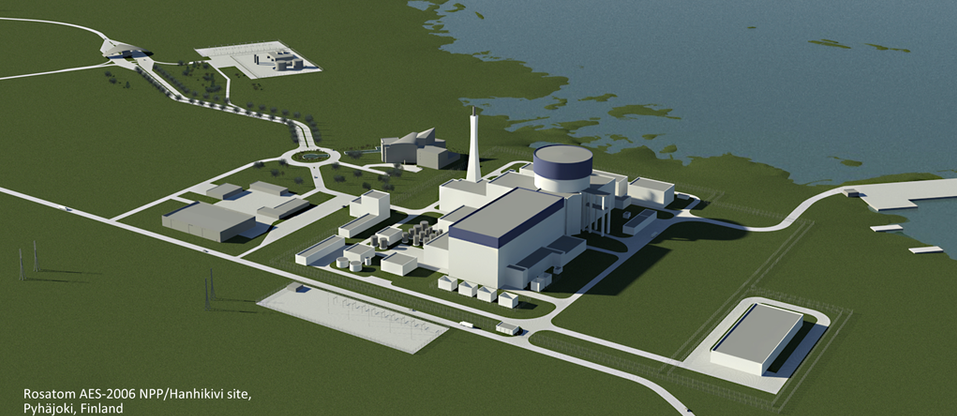
Norway’s environmental prosecutor fines Equinor a record amount following Bellona complaint
Økokrim, Norway’s authority for investigating and prosecuting economic and environmental crime, has imposed a record fine on Equinor following a comp...
News

Publish date: October 11, 2018
News
A Finnish-Russian consortium’s plans to build a nuclear reactor in Northwest Finland by 2024 is likely to be delayed, its chairman told Reuters on Wednesday.
The Fennovoima consortium includes Russia’s state nuclear corporation Rosatom, whose involvement has raised concerns in Finland about Russia’s influence in the country.
However, in 2014, the Finnish parliament narrowly approved the project to build the 1.2 gigawatt reactor, which is expected to cost $7.5 billion-$8 billion, to boost domestic energy production.
The delay challenges reports from the official Russian Tass newswire last week that said Rosatom expected the plant would receive its licenses by next year.
“Normally when a plane departs late it arrives late. 2024 would be extremely ambitious if not unrealistic,” the consortium’s chairman, Esa Harmala, told Reuters.
The consortium also includes Finnish power company Fortum and stainless steel maker Outokumpu, among other companies.
Finland’s nuclear regulator STUK last week told Reuters it would make a decision on a license to start construction of the reactor, named Hanhikivi 1, in 2020, pending the provision of documents from its owners, including Rosatom.
These documents have long been a sticking point. In several statements over the past years, officials from STUK have said Fennovoima has been sluggish about providing safety reports for the Russian-built reactor.
One of the regulator’s concerns focuses on the bedrock in Finland’s Pyhäjoki region, where the plant will be built, and whether it is robust enough to sustain a nuclear power plant.
The agency has also been worried about certain lapses among the personnel, and last May told Finnish broadcasters that safety culture in the build must be improved.
Then, last week, Finland’s Prime Minister, Juha Sipila, emphasized that the plant must meet safety requirements before the construction receives its license.
“It is an important project,” Sipila told the Tass newswire, a Russian state mouthpiece. “But it should be remembered that nuclear safety is priority number one as far as the use of nuclear energy in Finland is concerned. That is why the nuclear plant project must meet nuclear safety criteria and this matter is addressed by [our] independent agencies.”
Later last week, STUK said it expected to receive the plant’s safety documentation by the summer of 2019.
Harmala likewise told Reuters he expected that the documents would be supplied by summer next year, as more information is required from Rosatom. That means the consortium may not get STUK approval until 2020 and would struggle to meet its target to start the plant in 2024.
“We are still discussing with the supplier (Rosatom). By the end of this year we will get an updated timetable on the schedule,” said Harmala.
A spokesman for Rosatom, which holds a 34 percent stake in Fenovoima consortium, said that “as of now” there has been no change on the planed startup date agreed by its members.
Rosatom, which has been stepping up an overseas expansion, agreed in 2013 to take the stake in the project, and to supply the reactor.
A Finnish project to build another nuclear power plant in Finland, Olkiluoto 3, is already more than a decade behind schedule, and may face further postponements, plant operator Teollisuuden Voima said last week.

Økokrim, Norway’s authority for investigating and prosecuting economic and environmental crime, has imposed a record fine on Equinor following a comp...

Our op-ed originally appeared in The Moscow Times. For more than three decades, Russia has been burdened with the remains of the Soviet ...

The United Nation’s COP30 global climate negotiations in Belém, Brazil ended this weekend with a watered-down resolution that failed to halt deforest...

For more than a week now — beginning September 23 — the Zaporizhzhia Nuclear Power Plant (ZNPP) has remained disconnected from Ukraine’s national pow...